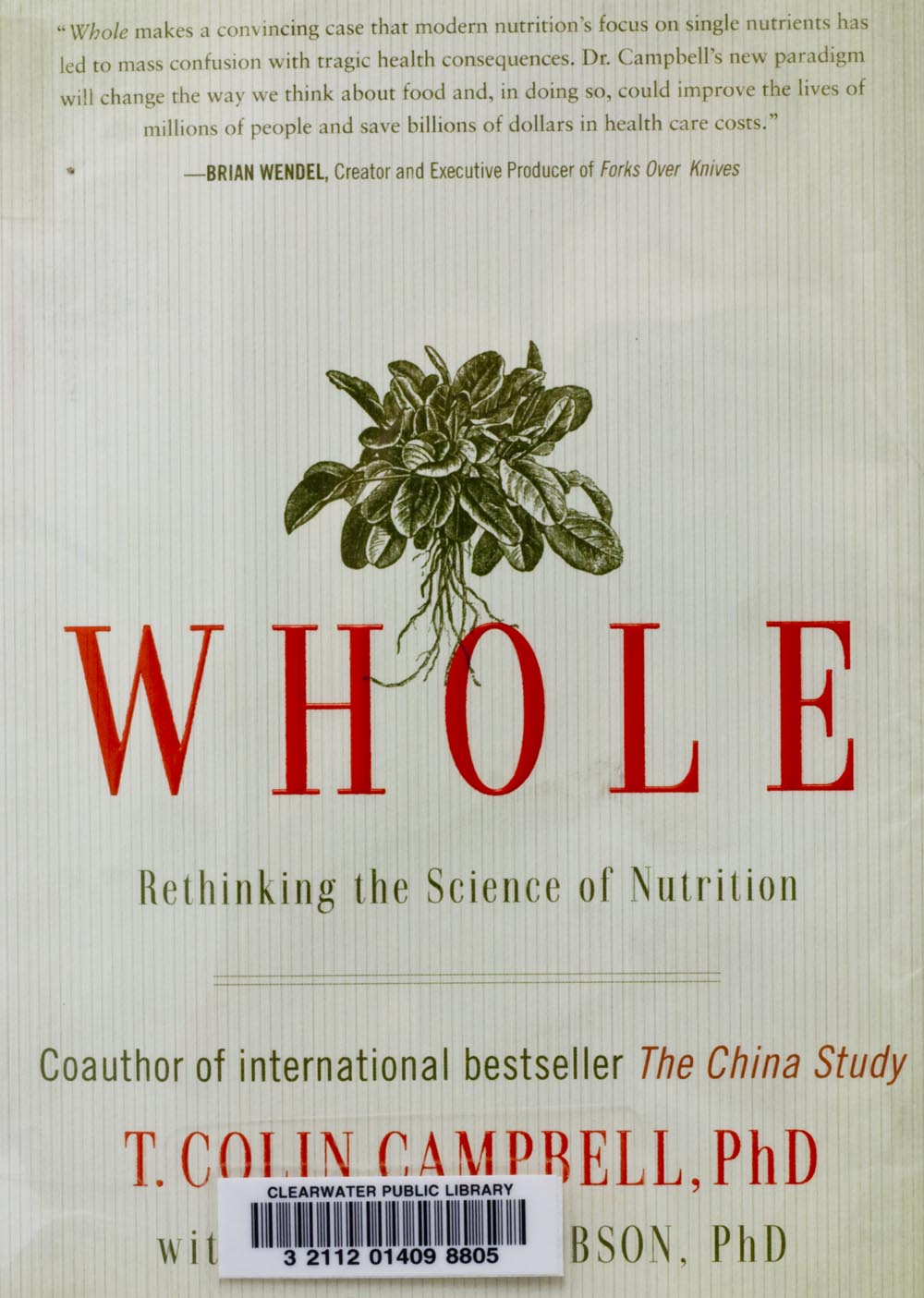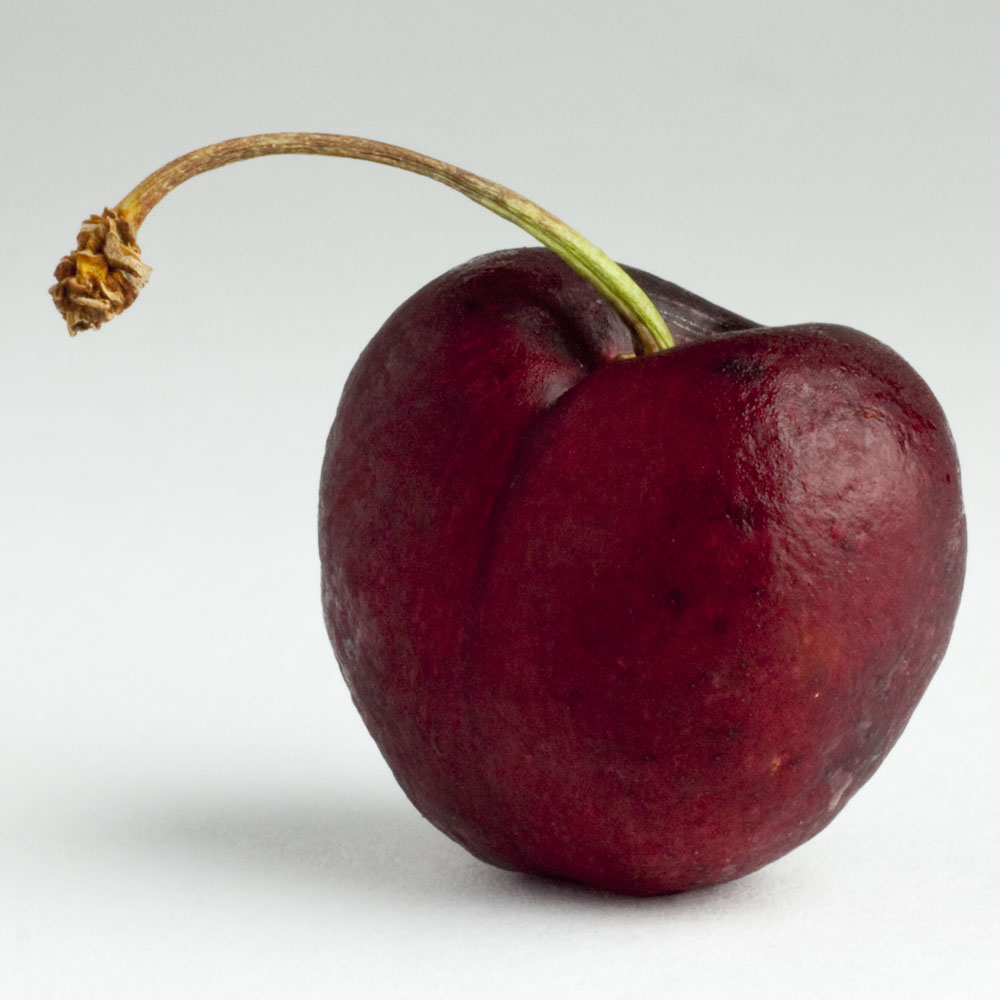
“Whole – Rethinking The Science Of Nutrition” by T. Colin Campbell, Ph.D and Howard Jacobson, Ph.D is an important book for anyone with an interest in keeping themselves healthy.
“Whole – Rethinking The Science Of Nutrition” is written by T. Colin Campbell and Howard Jacobson, Ph.D. The publisher is BenBella Books, Inc. Both authors have long and productive careers in the health and nutrition fields. Doctor Campbell is also an author of “The China Study”. “Whole” follows up on the ideas about diet and nutrition presented in “The China Study” and explains why so little has been done to update our healthcare system despite massive evidence that the system is not really improving health. “Whole” is also a call to arms for people who want to be healthy to start taking responsibility for themselves and to push government and industry to make the necessary changes for a better healthcare system. This book is a very well-written 290 pages followed by extensive citations of specific studies that support the authors’ arguments.
The main premise of the book is that the modern scientific paradigm of reductionism, or breaking things down into the smallest possible pieces, just is not applicable to nutrition. A very strong case is made by the authors that living biology and nutrition are just too complicated(too many variables, too many possible outcomes, too long chains of events leading to a final outcome) for reductionism to ever make accurate predictions. As has been proven by many reductionist experiments over the course of many years, just because you have figured out that vitamin C is a strong antioxidant within the body does not mean that taking vitamin C supplements will result in better health.

Whole foods will always be better for health than supplements. A variety of vegetables that changes from day to day, week to week and month to month is best for overall health.
A secondary but no less important premise of “Whole” is that our modern healthcare system is designed strictly to treat symptoms of disease rather than to promote optimum health. Many reasons for this situation are given, all of which ultimately lead to where the money comes from for research on health and nutrition. As long as almost all research money comes from industrial food companies and pharmaceutical makers the chances for any change in the present system are slim.
Doctor Campbell argues strongly for a whole food, plant based diet as originally presented in “The China Study” from 2005. He argues just as strongly that in order to get results that will actually lead to better health policies that research needs to take whole systems into account, not just individual nutrients in isolation. His point is that nutrition in living bodies is too complex for anyone to understand as a series of simple steps. There are just too many steps with too many variables at each step for that approach to work with human health and nutrition.

Fresh cherries are nutrition powerhouses, full of antioxidants and vitamins. Whole fruits as provided by nature are what we evolved to eat.
Strong evidence is presented to back up these arguments. Whole foods such as apples contain thousands of compounds that our body uses in some way. Many of these compounds have not even been identified yet but they all work together in a synergistic way inside the body. Taking one or two of these health-promoting compounds in isolation as supplements, no matter how high the dosage, will not produce the same beneficial effects on health that eating a real apple will. This is probably especially true if the supplemental compounds are produced artificially in a chemistry lab instead of inside a living fruit or vegetable. Yet another reason why this occurs is that many known vitamins and other health-promoting compounds are actually several related compounds with similar chemical structures acting together. If vitamin A or vitamin E are actually five or seven or ten similar-but-not-identicle substances, does it make any sense to take high doses of only one of their forms and expect to get positive results on health?
Read this book! It is important to understand why current healthcare isn’t working and what does work to keep us healthy. The ideas presented in this book and the reasons the book was written are exactly why I write this blog. These are the reasons I feel so strongly about health and nutrition. I do not want to pay massive amounts of money to treat symptom after symptom when I can prevent the underlying cause of the symptoms instead. I want to be healthy, not kept alive a little longer.
Doctor Campbell is now 79 years old and retired from his research career. The fact that he avoids sounding like a bitter old man in this book and is in fact dedicating himself to spreading his nutritional advice is admirable. He has been treated badly by the science community over the years because of his willingness to suggest new approaches and point out obvious failures of the present system. I am glad he no longer has to worry about having his career destroyed and can concentrate on more important issues.
